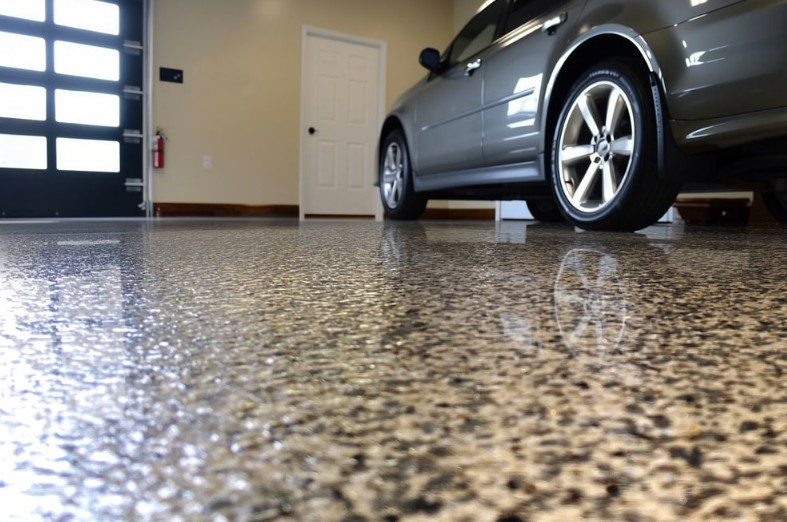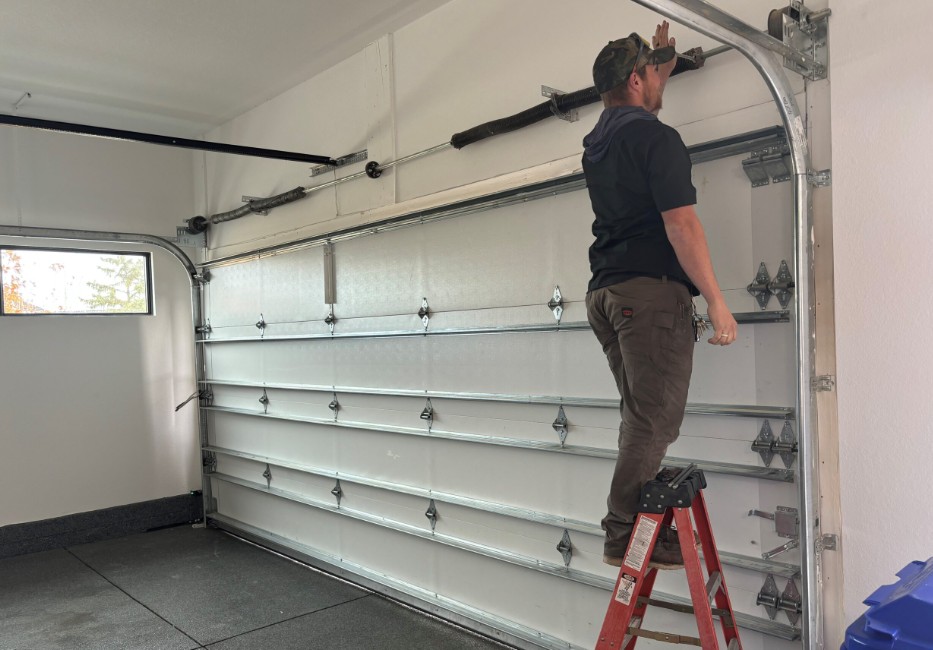Remarks by President Biden on Medicare and the Inflation Reduction Act

Rose Garden
1:29 P.M. EDT
THE PRESIDENT: Well, Bob, thank you — thank you very much for that introduction. Bob didn’t tell you one of the most important criteria he had to be here, in addition to being a fighter, was he had two daughters-in-law and a son who went to the University of Delaware. (Laughter.)
Well, look, folks, a lot of us — and I look around the room here, from Joe Crowley and others who are no longer — we’ve been waiting for this day for a long time — a long, long time.
We got — it’s going to take a little while for some of this to kick in, but it’s locked in. It’s locked in.
And I want to thank everyone who’s here, including my Secretaries and my Cabinet members and — for their relentless — how relentlessly you worked to protect Medicare.
But before turning to the topic I want to discuss today — I hope you’ll indulge me — I want to talk a little bit about the people — the crisis people are facing in Florida right now.
Hurricane Ian made landfall in Cuba this morning as a Category 3 storm. Florida is now preparing for the — the hurricane to make landfall.
Forecasts can change, but for now, the experts say this could be a very severe hurricane — life threatening and devastating in its impact.
So I want to be clear about two main messages.
First, my administration is on alert and in action to help the people of Florida.
I’ve approved Florida’s request for emergency assistance immediately upon receiving it from the governor when I received it. And I directed my team to surge federal assistance there before the storm hit.
FEMA has already deployed 700 personnel to Florida, and the Governor has activated 5,000 state National Guard, with another 2,000 Guard coming from other states.
FEMA is also proposing — (applause) — and prepositioning 3.5 million liters of water, 3.7 million meals, and hundreds of generators.
I just spoke this morning with the areas that’ll likely be hit — the mayors of Tampa, St. Pete’s, and Clearwater.
All of them — all of them are in the storm’s path. And they’re focused on the safety of their communities, and they’re doing everything they can to get people out of harm’s way.
I told each one of them in my conversations, separately: Whatever they need — I mean this sincerely — whatever they need, contact me directly. And they know how to do that. I have a lot of personnel down there already. We’re here to support them in every way we can.
Second thing I’d like is mention is the citizens in the potential impact area should obey the instructions of local officials. Evacuate when ordered, and be prepared for the — what it’s — for the storm when it comes. And evacuations have already been called for. And I — apparently, they’re going along fairly orderly — in a fairly, orderly way in each of the three cities. Your safety is more important than anything.
And I know our hearts are with everyone who will feel the effects of this storm. And we’ll be with you every step of the way. We’re not going away.
And as we prepare for Ian’s landfall in Florida, I remain focused — (coughs) — excuse me — on helping Puerto Rico recover from the aftermath of Hurricane Fiona.
Hundreds of FEMA and federal personnel are now there, including search and rescue teams, the U.S. Army Corps of Engineers for power restoration, and other experts from around the country.
FEMA has already distributed $40 million in direct assistance to survivors to help them begin to rebuild their homes. And FEMA also is providing $700 in direct assistance to families displaced from their homes to meet critical needs of food, first aid, prescriptions, and baby food, and fuel now.
And imme- — I immediately approved the ex- — the expedited major disaster declaration to provide individual and public assistance — on public assistance to help their communities recover as well.
This declaration will get federal resources out quickly and help people start to rebuild their lives. They’ve been through a rough period since the last hurricane.
And as part of the declaration, I’ve also authorized 100 percent federal funding for debris clearage, and rescue pi- –for power and water restoration, shelter and food for the entire month.
And to the people of Puerto Rico who are still reeling from Hurricane Maria five years later: We are with you, and we’re moving forward with you, and we’re not going to go home until it all gets done.
Now to today’s event on — about Medicare.
You know, I want to share the progress that we’ve seen and been making to bring down the healthcare costs and strengthen Medicare, which is, for so many seniors, the only thing they can rely upon. And we’ve worked really hard to maintain it.
The way I think about it is the way my dad talked about the way so many of you at home talk about issues around the kitchen table: How much — how much are your monthly bills; how much do you have to pay for the necessities; and will there be enough at the end of the month for just a little bit of breathing room — as he used to say. Just a little breathing room.
A big cost — a big cost and a big concern for most folks is prescription drugs and other healthcare. Reducing that cost and concern is one of my top priorities.
That’s why I signed into law the Inflation Reduction Act — one of the most significant laws in our history. I finally — it finally delivers on the promises that many of us have made in this audience as well that the American people have had to undergo for decades that we’re going to change.
For example, we pay more for prescription drugs than any other advanced nation in the world. And there’s no good reason for it. For years, many of us have been trying to fix this problem. But, for years — for years, Big Pharma has stood in the way.
Not this year. This year, the American people won, and Big Pharma lost. (Applause.)
For years, there had been no check on how high or fast Big Pharma can raise drug prices. But thanks to the Inflation Reduction Act, that ends now. Now, if Big Pharma tries to raise drug prices faster than inflation, they’ll be penalized and they have to rebate the money to Medicare.
And from now on, if you’re on Medicare and you have diabetes, the cost of your insulins will ca- — be capped at $35 a month per sh- — per prescription. (Applause.)
Bob just told you what a difference it’d make — it’s going to make in his life and what it could’ve made in his life had this been around a long time ago.
And now we wanted to — to be the — that the case for everybody — for everybody to have peace of mind.
We wanted to cut the cost of insulin for everyone, including hundreds of thousands of children with Type 1 diabetes. But, unfortunately, we had that in the bill that Republicans were able to get the votes to strike that out of the bill.
It only costs only $10, by the way, to make a bottle of this insulin. Ten bucks. And there’s no patent on it. Ten bucks, okay? And they’re charging, as Bob told you they charged him, 30 or more times that cost.
Imagine — just imagine being a parent. Imagine being the parent of a kid suffering from Type 1 diabetes knowing you didn’t have the money. Let’s say you’re paying five, six, seven hundred dollars a month and you don’t have it. How in God’s name — not a joke — how in God’s name do you look at that child — knowing you can’t afford it, you don’t have the insurance, you have no way of getting it — how do you go — undergo that?
As my dad would say, it not only deprives that child of a healthy existence, but it deprives a parent of their dignity — their dignity.
You know, well, just imagine. Just imagine if we’re able to provide this for everyone — everyone in America — at 35 bucks a shot.
Look, I haven’t given up on this. You know, we’re going to go back at this, and we’re going to lower the cost of lifesaving insulin for children as well as families for everybody, whether they’re on Medicare or not. (Applause.)
Look, after years of Big Pharma blocking it, Medicare will finally get the power to negotiate lower prescription drug prices. Seniors will see their out-of-pocket costs for
prescription drugs be limited — as this comes into full force — to $2,000 a year. (Applause.) No senior will have to pay more than — on Medicare — pay more than $2,000 for all their prescriptions, whether it’s cancer drugs or anything else.
Thousands of Americans on Medicare pay more than $14,000 a year for blood cancer drugs, more than $10,000 a year for ovarian cancer drugs, more than $9,000 a year for breast cancer drugs.
Many people on Medicare skip those cancer drugs that they need because they can’t afford them. It’s a simple proposition: They can’t afford them.
Now the maximum they’re going to have to pay for all their prescription drugs — no matter what the cost — is $2,000 a year. Period. (Applause.) And it’s going to be a godsend. It’s going to be a godsend to many families.
Last year, by the way, a family of four saved $2,400 through the American Rescue Plan that I signed into law. And now the Inflation Reduction Act locks in place those lower healthcare premiums for millions of families who get their coverage through the Affordable Care Act.
And this morning, we got more even good news about lowering costs. The Department of Health and Human Services announced that the premium for Part B will, in fact, decrease this [upcoming] year. That’s a fee you pay — (applause) — that’s a fee you pay for Medicare to cover your visits to your doctor.
For years, that fee has gone up. Now, for the first time in more than a decade, it’s going to go down. And millions of seniors and people with disabilities on Medicare, that means more money in their pockets while still getting the care they need.
And on top of that, if you have Medicare’s prescription drug coverage Part D, you pay for your prescriptions more than — you pay — you pay for your prescriptions, more of your shots will also be free. We’re getting rid of the cost of the prescriptions and bringing them way down.
But guess what? If you need a vaccine, like shingles — last year, more than 2 million seniors got that vaccine; most of the folks had to pay $100 for that shot. In some cases, $200 for that shot.
Well, do you have any wonder how many seniors skipped that shot? For seniors with disease, it could be — because it’s too expensive.
Well, they won’t have to make that choice anymore. Thanks to the Inflation Reduction Act, starting in January, senior[s] [with] Medicare prescription drug coverage and the price you pay for this — these shots will drop to zero. Zero. (Applause.)
As I said, just for the sing- — just for the shingles vaccine alone, that’s more — $100 or more out of your pocket.
And my administration is taking other steps to bring down healthcare costs as well. I met with my Competition Council — made up of my Cabinet and those who work with the Cabinet. They’ve changed — they’re charged with promoting compensation across our economy — competition, I should say, across our economy to help lower the prices and raise wages.
One thing we’ve done is to make more affordable hearing aids available over the counter starting next month so people don’t have to pay the expensive — for these expensive devices and specialist visits. We’ll to have to save — it’ll literally save patients thousands of dollars.
And to bring greater transparency to healthcare costs, my administration has also outlawed surprise billing. You know — — (applause) —
If your insurance plan didn’t cover a particular doctor and you didn’t even know he or she was being consulted, and you got an extra bill for thousands of dollars, they can’t do that anymore. They can’t do that anymore.
Millions of hardworking Americans will no longer have to worry about unexpected medical bills.
We’re going to be able to pay for all of this by making sure the biggest corporations in America begin to pay their fair share of federal taxes. (Applause.)
Folks, for decades, the biggest corporations have fought to block a fairer tax code.
Under Donald Trump, my Republican friends had no problem
enacting a $2 trillion tax cut that overwhelmingly benefitted the wealthy — the wealthiest Americans, the biggest corporations that — not a penny of which was paid for and massively increased the federal debt.
In 2020, 55 of the biggest corporations in America made $40 billion in profit. I’m happy for their profits, but they didn’t pay a single penny in federal income tax on $40 billion — in taxes.
But this year, even though some of the biggest corporations in America flooded Capitol Hill with lobbyists and money, they lost and we won. (Applause.)
Now corporations will have to pay a minimum corporate tax of 15 percent. Just 15 percent. We’re not gouging anybody. Fifteen percent minimum. That’s it. That’s it.
The days of billion-dollar companies paying zero taxes are over though. And there’s enough money there to pay for an awful lot of this.
And let me be crystal clear about it — something else: No one — as I said when I ran, no one earning less than four thou- — $400,000 a year will pay a single penny more in federal taxes. If you’re making less than 400 grand — and I hope none of you are; I hope you’re all making more than that — (laughter) — you don’t have to pay a penny more in taxes if you make less than 400.
You know, that’s a commitment I made in my campaign and a commitment I’m keeping.
And we’re doing all this by bringing down the deficit at the same time. You hear about us being “big spenders”? Well, they raised the debt by $2 trillion. We’ve reduced the deficit in my first year, 2021, by $350 billion. Okay? (Applause.)
And even with some student loan forgiveness and all the cost of all these things, we’re still — we’re on track to reduce the deficit this year — fiscal year — by more than $1 trillion. (Applause.)
And the Inflation Reduction Act will reduce it another $300 billion over the next decade. That’s possible because Medicare is finally going to be able to negotiate lower prescription drug prices so less money paid out.
Now, I wish I could say Republicans supported this prog- — progress and reducing healthcare costs and strengthening Medicare. That would be good for all of America.
But they have a very different idea. Every single Republican voted against the Inflation Reduction Act. And when it actually came time to do something about inflation around the kitchen table, every one of them said no — House and the Senate.
And sadly, it goes even further: 158 House Republicans have already signed a Republican budget that will cut Medicare and Social Security. I know you think I’m probably exaggerating that, but there’s a pamphlet — a pamphlet: “12 Point Plan to Rescue America” by Senator Scott of Florida. Okay?
I won’t read through all of it, but it says, “All federal legislation sunsets in 5 years. If [it] is worth keeping, Congress can pass it again. Translated: If you don’t vote to keep it, you don’t get it.
Now, what do you think they’re going to do when the House Budget Committee started talking about the cost of Medicare and Social Security and why we can’t afford it?
Folks, you know, the senator in charge of reelecting the United States senators — Senator Scott — has proposed the plan where Social Security, Medicare every five years on the chopping block. It means every five years, you either cut it, it reduces, or completely eliminate it — Social Security and Medicare.
You know, you’ve been paying into Social Security since the first job as a teenager and you get your paycheck.
And, by the way, then there’s Senator Ron Johnson of Wisconsin. He thinks waiting five years — every five years is too long to wait. Not a joke. These are actually in writing, okay? He wants to put Social Security and Medicare on the chopping block every single year in every budget. If Congress doesn’t vote to keep it, goodbye.
Now, it’s not just Social Security and Medicare he wants to deal with. He wants to put veterans’ benefits and everything else at the federal budget at risk. He’s the same person who said that if Republicans gained control of Congress, they should once again try to repeal the Affordable Care Act, which, by the way, is the only reason why millions of people — millions of people with preexisting conditions were able to get healthcare is the Affordable Care Act — literally, not figuratively. Literally.
Then, last week, Republican Leader of the House unveiled what he called the “Commitment to America.” God bless America. It’s a thin set of policy goals with little or no detail that Republicans say they’ll pursue if they regain control of the Congress.
In the course of nearly an hour, here are a few of the things that we didn’t hear: We didn’t hear the words “Medicare” or “Social Security.” And he said for the first time they’ll get what — the first thing they’re going to do is repeal the Inflation Reduction Act. Well, guess what? All those things that I mentioned we’re going to do, they get rid of all of them — all of them — with the repeal.
I have a different idea. I’ll protect those programs. I’ll make them stronger. And I’ll lower your cost to be able to keep them.
Let me close with this: Over the last few years, we’ve faced some of the most difficult challenges in our history, but we’re actually making progress helping folks get just a little more breathing room. Lowering healthcare costs and strengthening Medicare is a big part of progress that we’ve been making on inflation, not just with gasoline prices and other progress.
It’s one of the reasons why I’m so optimistic about America’s future, for real. We have to remember who in God’s name we are. We’ve kind of forgotten it. We’re the United States of America. I’ve never been more optimistic in my life about our prospects. There is simply nothing — nothing beyond our capacity to get done if we do it together.
So God bless you all and pray that we come — figure out how to come together better than we have so far, because a lot of people’s lives and futures depend upon it. And I’m confident — I’m absolutely confident we can get it done.
God bless you all. And may God protect our troops. Thank you. (Applause.)
1:49 P.M. EDT





